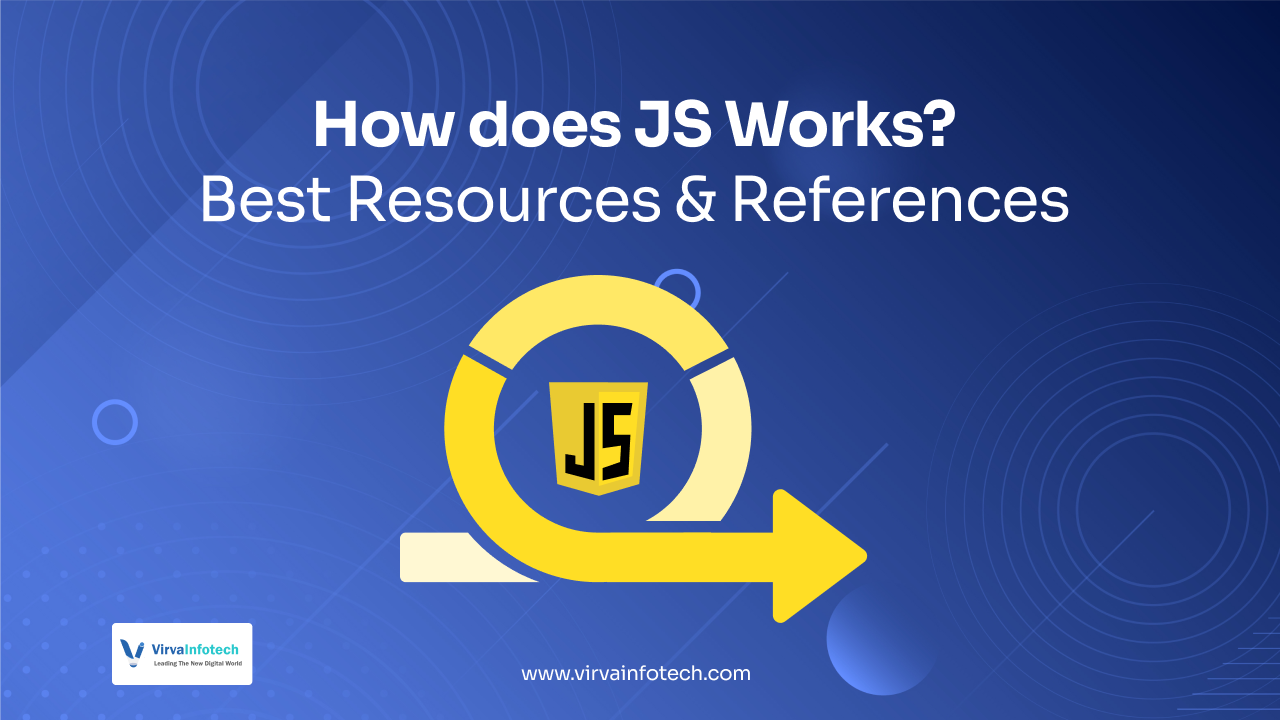Posted At: Jul 27, 2024 - 517 Views

JavaScript has become one of the most popular and versatile programming languages in the world. It is the skeleton of the web development world, and along with that, it supports building interactive, dynamic, and feature-full websites. It generally provides limitless possibilities from developing responsive web pages to running applications on servers.
In this guide, we are going to give the reasons for learning JavaScript, how it works, and where you can find resources to help you master the language. Whether you are a newbie or an aspiring full-stack developer, the ticket of entry into the tech industry is developing powerful web applications built in JavaScript.
A Fact to Learn JavaScript
That's why a very large potential reason goes into the programming working field as JavaScript. Some of the importance pieces are as follows:
1. Everywhere Everywhere
Javascript is the number one most globally used programming language to serve web development needs. From the 97.3 websites counted online, every major technology giant itself is on them: Facebook, Google, Amazon.
2. Allpossible Language
JavaScript is not strictly for frontend development only:
Front-end Development: For building interactive UI elements (animations, forms, sliders)
Back-end Development: Server running JavaScript with frameworks such as Node.js
Mobile Application Development: Making mobile apps using such tools as React Native
Game Development: for browser-based games
IoT(meaning Internet of Things): Running code in smart devices
3. Extremely Easy
Such a simple forgiving syntax in JavaScript makes it a suitable language to start learning programming for the first time and feasible for beginners. One gets to see results quite fast since all the browsers show the immediate response in JavaScript, making learning exciting.
4. In-Demand Skill
For example, according to the 2024 Developer Survey, JavaScript has stood on the top page of the Programming Languages, among which over 61 per cent of developers said they use it. Learning it is the key to job openings such as front-end developer, full-stack developer, and software engineer.
5. Big Stars within the Community
The language of JavaScript has millions of developers and provides all forms of resources available: tutorials, courses, books, and forums to write just as much as code within the right community.
JavaScript against Other Programming Languages
Still indecisive about giving JavaScript a shot? Here’s how it ranks along with popular programming languages in the world:
C: Well known for its performance and complexity, excellent for system programming, but very horrifying to beginners.
Python: The easy-going, general-purpose language that is most often seen in the context of data science, machine learning, and automation.
Java: The one that is responsible for making high-paying jobs and enterprise-level applications.
Ruby: Also known for its usability and flexibility; mostly used in startups.
This is why JavaScript. It is everything put together. It is an easy, general, well-paying-in-demand programming language across industry areas.
How Does JavaScript Work?
Let’s understand the role of JavaScript in web development using an analogy:
HTML: Acts as the guest list of a party. It defines the content and structure of the web page (text, images, links).
CSS: Works as the decorations. It styles the elements on the page (colours, fonts, and layout).
JavaScript: Adds life to the party! It makes web pages interactive, dynamic, and fun.
JavaScript in Action
When you visit a website:
1. The HTML, CSS, and JavaScript files are downloaded by the browser.
2. The HTML is responsible for deciding what to exhibit.
3. CSS applies the styles.
4. JavaScript implements scripts that enable interactivity, such as:
Making buttons clickable.
Updating information without refreshing the page.
By incorporating animations or real-time data updates.
Example: Here’s your first JavaScript code to get started:
<!DOCTYPE html>
<html>
<head>
<title>My First JS Page</title>
</head>
<body>
<h1>Hello, JavaScript!</h1>
<script>
console.log("Hello, World!");
</script>
</body>
</html>
Save this as index.html, open it in a browser, and view the result in the Developer Console.
You’ll see "Hello, World!" printed. Congrats! You just ran your first JavaScript code.
Why JavaScript Dominates the Tech Industry
All of the following reasons account for JavaScript's continued supremacy:
Quick learning: A novice easily encounters the lure of its simple syntax and immediate results.
Highly Flexible and Powerful: From simple web pages to complex applications, organize everything.
Full Stack: Use Node.js at the backend while enjoying front-end developments such as React, Vue, or Angular.
It runs everywhere: JavaScript runs on the browser, runs through mobile, and even the most personal IoT devices.
Great Job Opportunities: The labour market is in great demand for JavaScript developers, thus providing excellent job opportunities and salary compensation.
How to Start Learning JavaScript
Carpenter your own JavaScript adventure using the steps below:
1. Create your environment.
Use a browser input such as Chrome or Firefox.
Find and download one such text editor, Visual Studio Code, VS Code for short.
The first simple scripts should be embedded in HTML files.
2. Sources of Learning JavaScript
Online Courses
freeCodeCamp: Hands-on JavaScript tutorial and projects.
Codecademy: Interactive lessons for beginners.
Udemy: Enormous courses taught by top instructors.
Books
Eloquent JavaScript from Marijn Haverbeke.
You Don't Know JS, by Kyle Simpson.
Websites and blogs
MDN Web docs: The ultimate documentation for JavaScript.
JavaScript.info: Tutorial-friendly for starters and for more advanced topics.
YouTube channels
Traversy Media: Tutorials for those who are learning from the ground up on how to use JS.
The Net Ninja: Perfect place for learning JS and its related frameworks
Pre-Tips for Learning JavaScript
Here are some tips to make your learning journey smoother:
1. Practice Regularly: Build small projects like a calculator, a to-do list, or a simple game.
2. Break Down Problems: Tackle challenges step-by-step instead of overwhelming yourself.
3. Join Communities: Platforms like Stack Overflow, Reddit, and local coding meetups are great for support.
4. Stay Curious: The tech world evolves quickly, so stay updated with new JavaScript frameworks and tools.
5. Learn Debugging: Use browser Developer Tools to test and debug your code.
Conclusion
JavaScript is an essential programming language that opens up endless opportunities in web development, mobile app development, and more. It’s beginner-friendly, versatile, and consistently in demand in the tech industry. By learning JavaScript, you gain the power to build interactive websites, full-stack applications, and even advanced projects like games and IoT apps.
Start with small projects, explore frameworks like React and Node.js, and keep practising. Remember, coding is a journey, and every mistake teaches you something new. So, stay patient, have fun, and keep building.


